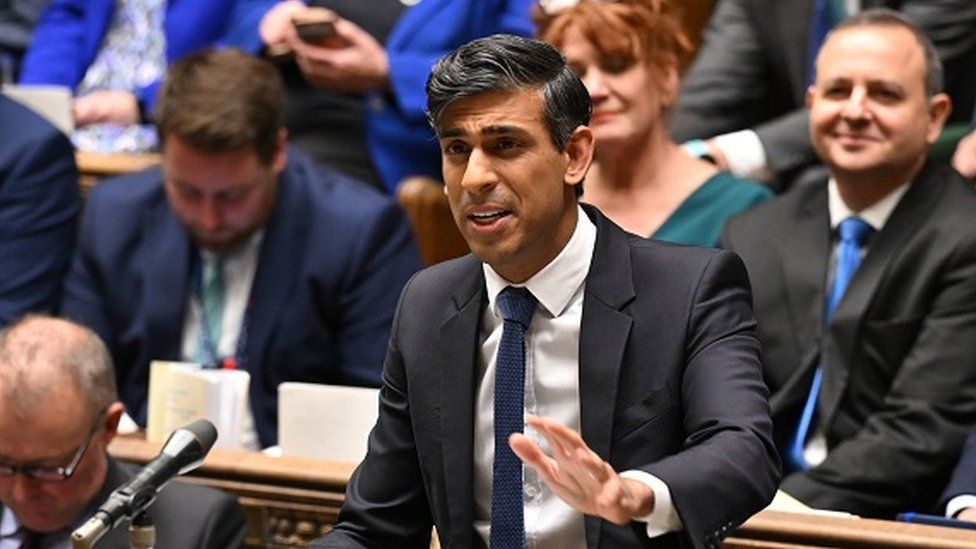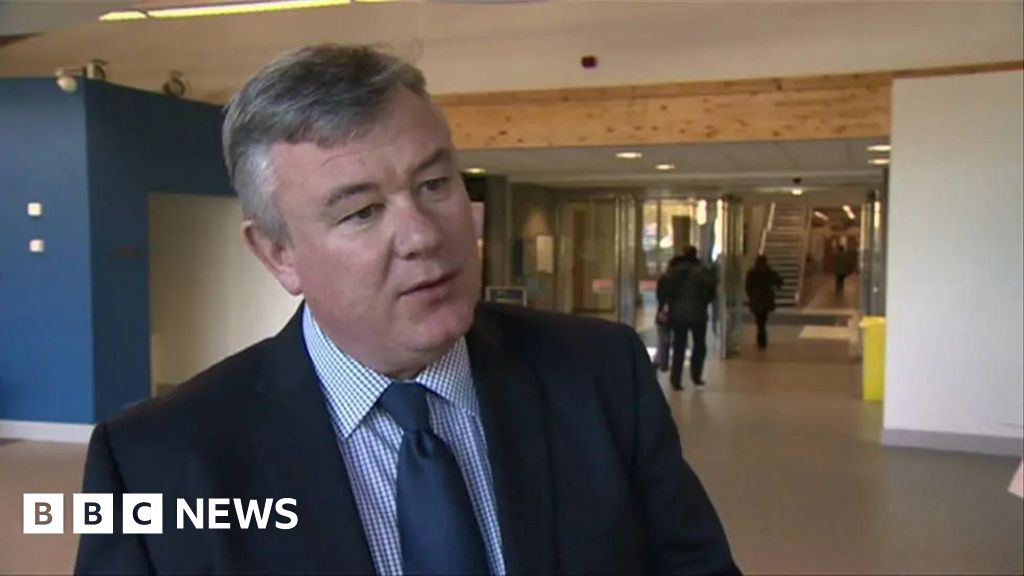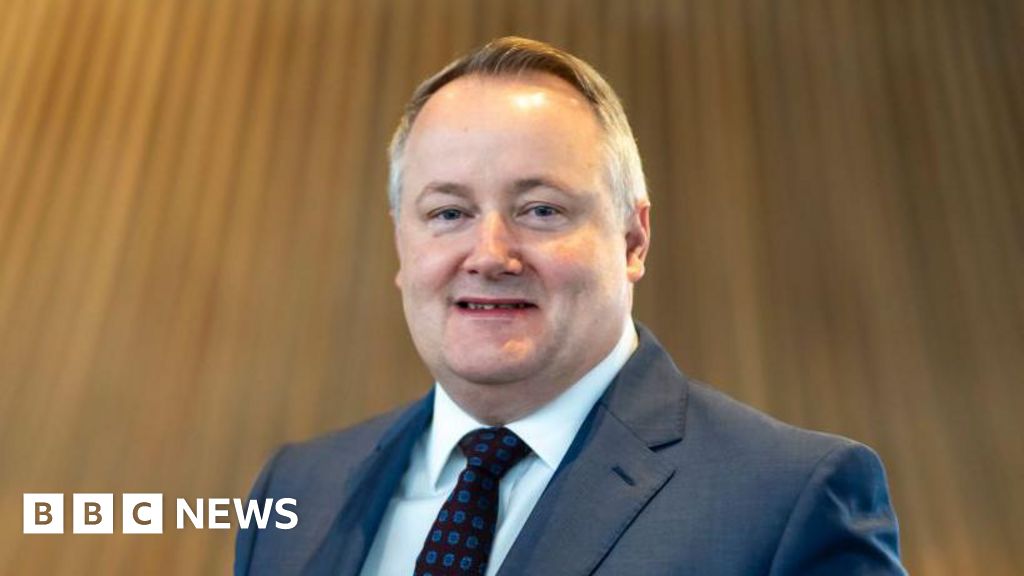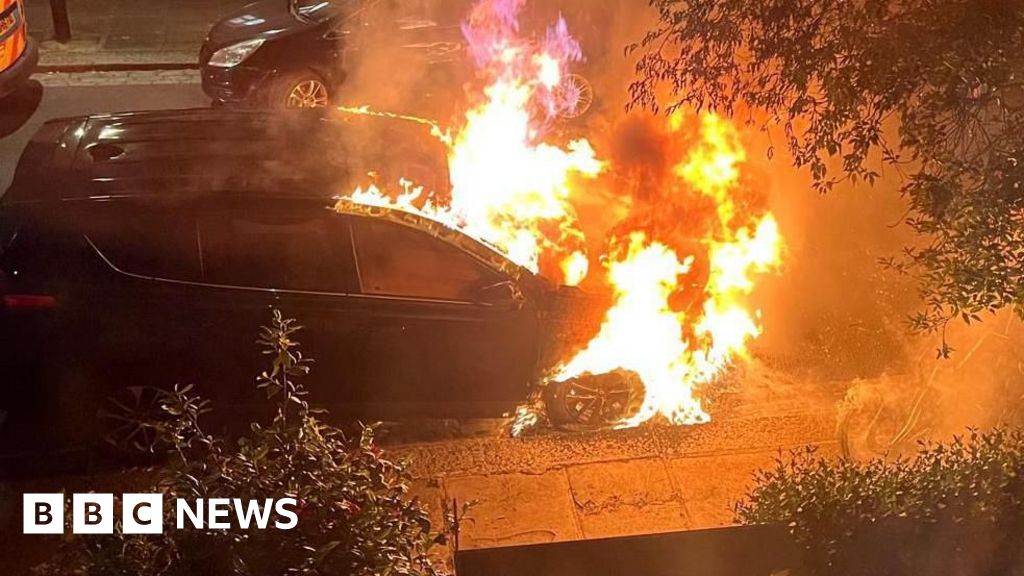ARTICLE AD BOX
 Image source, UK Parliament/Jessica Taylor
Image source, UK Parliament/Jessica Taylor
By Oscar Bentley
BBC Political Research Unit
Rishi Sunak and Sir Keir Starmer will face each other at the first Prime Minister's Questions (PMQ) of the year on Wednesday.
Sir Keir will not be short of subjects on which to grill to the prime minister, who does not know in advance what the Labour leader will be asking him.
The six questions the opposition leader gets each week at PMQs, when Parliament is sitting, offer a snapshot of the issues dominating the news agenda - and what Labour believes are its strongest lines of attack on the government.
In 2023, Sir Keir asked Rishi Sunak about the health service 28 times, out of a total of 198 questions.
Immigration and the cost of living tied for second place of most common subjects, at 23 questions each.
Our analysis includes questions asked by Deputy Labour Leader Angela Rayner to Deputy Prime Minister Oliver Dowden or former Deputy Prime Minister Dominic Raab, who stood in for Sir Keir and Mr Sunak when they're away.
The BBC tracks the topics of questions asked by the leader of the opposition to the prime minister at PMQs.
Thirteen of those questions on health were about NHS waiting lists. The prime minister made cutting waiting lists one of his priorities at the start of last year, but waits for non-emergency treatment in England rose to 7.71m in October 2023, almost half a million higher than they were at the start of the year.
The government says this is because of strikes by health unions.
Six of those health questions were about waits for ambulances - all on the 18 January, shortly after record-worst response figures were published.
Cost of living and immigration
Twelve of the questions on the cost of living were about mortgage rates, with Sir Keir often criticising the "Tory mortgage penalty" in the wake of rate rises following Liz Truss's mini-budget in September 2022.
They came up most regularly in the summer months, when rates were reaching their highest.
Image source, UK PARLIAMENT/MARIA UNGER
Image caption,Sir Keir Starmer gets six questions every week
Mortgage rates peaked at an average of 6.85% for a residential property in August 2023 but have since fallen to below 6%, according to financial information service Moneyfacts.
On immigration, 14 questions were about illegal immigration - with six of those being about the government's controversial plan to send asylum seekers to Rwanda.
Crime, housing, and the Conservative Party
There were 19 questions on policing, crime, prisons and justice, which included questions about the murder of Zara Aleena, the review by Baroness Casey into standards of behaviour and internal culture in the Metropolitan Police, and escaped prisoner Daniel Khalife.
Housing was asked about 15 times, with 10 questions on housebuilding, and four about no-fault evictions.
The government said it would ban no-fault evictions in its Renters Reform Bill, although indefinitely delayed this in October until after the court system is reformed.
General criticisms of the Conservative Party and the government came up 11 times, including when Sir Keir was summarising several topics and the government's record in his final question.
It also includes questions about so-called "sleaze" and criticisms of Mr Sunak.
The schools concrete crisis, Russia-Ukraine war, the Northern Ireland protocol, child poverty, and the BBC were all asked about six times by Sir Keir.
What is Prime Minister's Questions?
Held most weeks when Parliament is sitting on Wednesdays at 12 noon, PMQs is a chance to MPs to hold the Prime Minister to account on topics of their choosing.
Last year's sessions lasted for an average of 35 minutes and 3 seconds, according to BBC research.
As Leader of the Opposition, Sir Keir gets to ask six questions each week.
The SNP's Stephen Flynn gets to ask two questions each week, as leader of the third largest party in the House of Commons.
Other backbench MPs who want to ask a question enter a ballot, although those not successful in the ballot can attempt to "catch the speaker's eye" by standing up in between questions.
PMQs used to be held twice a week for 15 minutes on Tuesdays and Thursdays, but changed to a longer weekly session by Tony Blair when he became prime minister.
Additional reporting: Lauren Tavriger

 1 year ago
32
1 year ago
32








 English (US) ·
English (US) ·